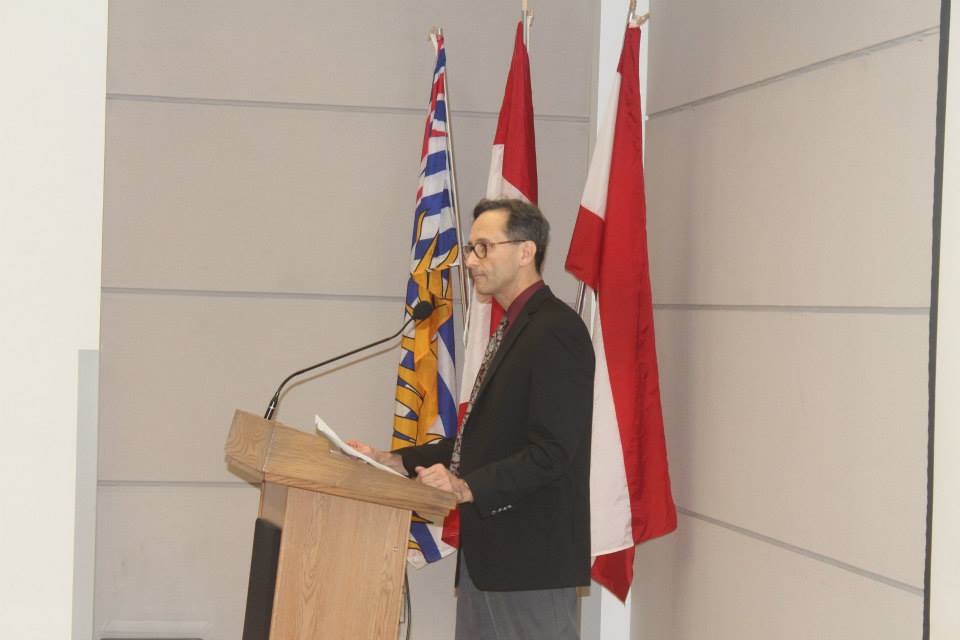Introduction to Rawi Hage
Ken Seigneurie, Director of the SFU Program in World Literature
November 2013
On behalf of the Program in World Literature and Derryl McLean, Director of the Centre for the Comparative Study of Muslim Societies and Cultures, I’m honoured to cooperate with the Lebanese Canadian Society of BC and the World Lebanese Cultural Union to welcome Rawi Hage here tonight. 
Thugs, thieves and taxi drivers. Rawi creates these characters, not according to ideas about what they should be in a book, but according to observation and lived experience. I don’t mean he’s spent hours observing thugs, thieves and taxi drivers, but that he’s observed human nature, honestly and without preconceived notions. So you feel the unbridled youthful vigor of Bassam as he rides a motorcycle with Rana on the back gripping his waist. And you sense the indignation Rana feels later as Bassam tries to force himself on her, and she pushes him away pointing a gun at his chest. Lots of writers write about people “on the edge,” people who are prey to extreme emotions, but I almost always roll my eyes in disbelief. When Bassam, with Rana’s gun pointed at his chest, grabs her wrist and keeps the gun pointed at himself and then tells her to pull the trigger, it’s somehow believable. I’ve known guys in Lebanon who would do something like this. A devil-may-care eagerness to bet his life on a lark is probably characteristic of young men anywhere but there’s something Lebanese or Levantine about Bassam’s gesture. I can just see him smirking, “Istarjii!”
That’s another thing I like about Rawi’s work. He’s a keen observer of Lebanese reality but never puts that reality in the service of an ideological agenda. Human truths are more important than ideologies in Rawi’s work. His fictional Lebanon is full of characters whose resourcefulness and sheer will to live know no limits. It’s the same resourcefulness we see in prosperous Lebanese the world over. It comes down to a power to circumvent obstacles. Like the mother who finds a way to tell her big, bad thug of a son, Bassam, to treat Rana with respect – and he obeys!
The power to circumvent obstacles is a precious thing. Rawi shows it in his prose, which is free of the obstacles of classical rhetoric and slick writing school styles. His abiding commitment to freedom in his characters and in his writing makes Rawi Hage’s novels such a pleasure to read. While his books have won a treasure chest of prizes, his greatest prize and his greatest gift to readers is that we feel a little bit freer when we read one of his books.




